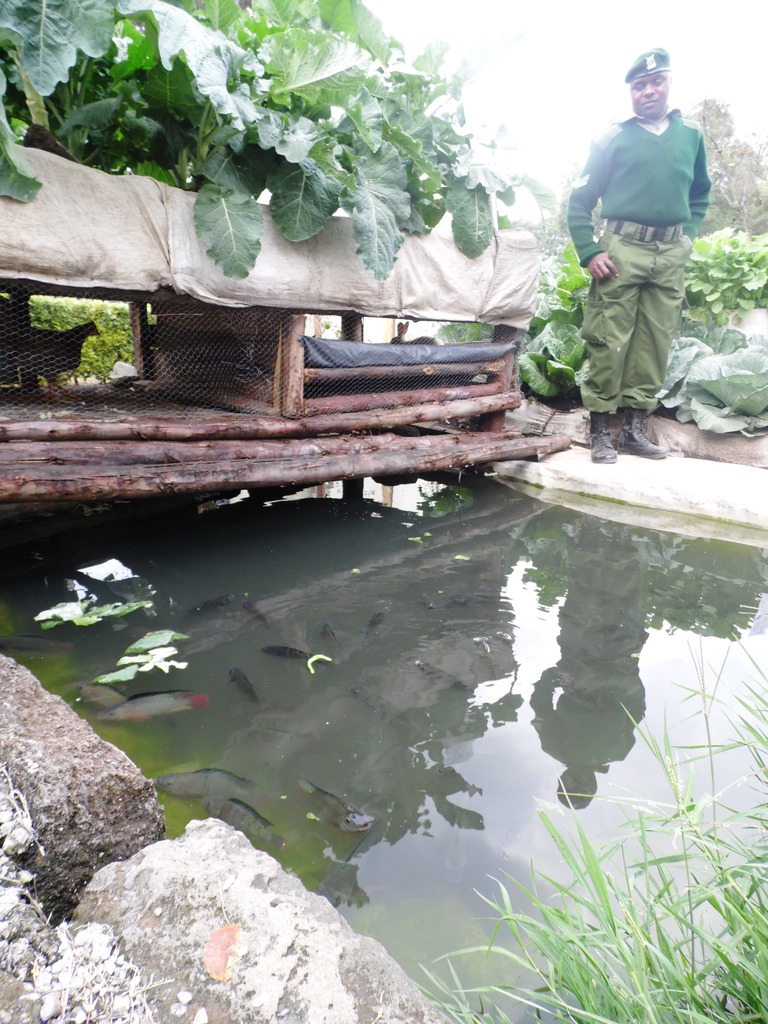An integrated fishpond with chicken, rabbits ad vegetables at Nakuru ASK Show ground. Keeping cow-dung in fishponds repels snake predators. Photo by Laban Robert.
Besides adding nutrients for the growth of food for fish, placing cow dung in a pond repulses snake predators, which could otherwise be tamed by chemicals that put the lives of consumers at risk.
Snakes are common in fish ponds along rivers and other forest-surrounding areas. Insects, fish and other reptiles like frogs are the main source of food for snakes.
“Snakes love fish, but hate cow-dung smell. A fish pond is more susceptible to snakes because the population is high within this water restricted area. This makes the snakes reside inside the pond or nearby areas. But a sack of about 10kg places in one corner of the fishpond could repulse these predators,” Jared Mogaka said.
Mogaka, who runs integrated farms in Nakuru, said the use of chemicals in taming predators presents a risk to consumers and the environment.
While the dung is fresh, it releases a strong decomposing smell that persists even after it has been placed in the water because it is moist.
READ ALSO: Two chickens and two rabbits multiply 50 fish weight in six months
READ ALSO: Aquaponic farming turns fish waste into cheap organic fertiliser
READ ALSO: Smearing fish ponds with lime stops seepage
Cowdung and chicken droppings are commonly immersed in one corner of fish ponds as manure to support the growth of planktons.
Planktons are microscopic plants that are fed on by fish. Besides, a high number of planktons in fishponds purify the water. In the process of making food, photosynthesis, they consume carbon dioxide released by the fish. These multibillion plants also release oxygen during photosynthesis that the fish consume.
Mogaka helps farmers set up integrated fishponds, where chickens and rabbits release urine and faecal droppings to support the growth of planktons. The water is also recycled to a rooftop vegetable garden to utilise the ammonia from the fish as a nitrogenous fertiliser.

















Comments powered by CComment